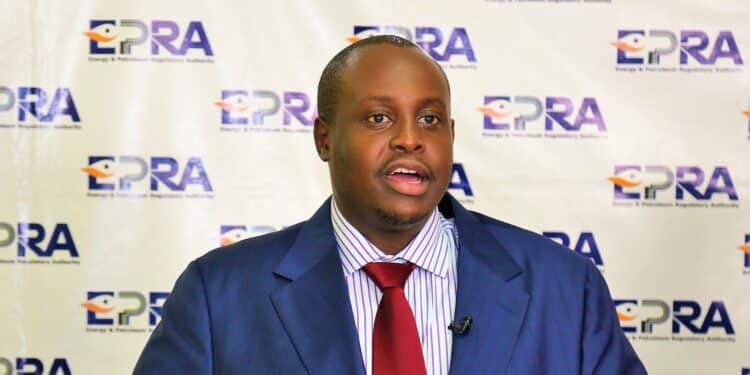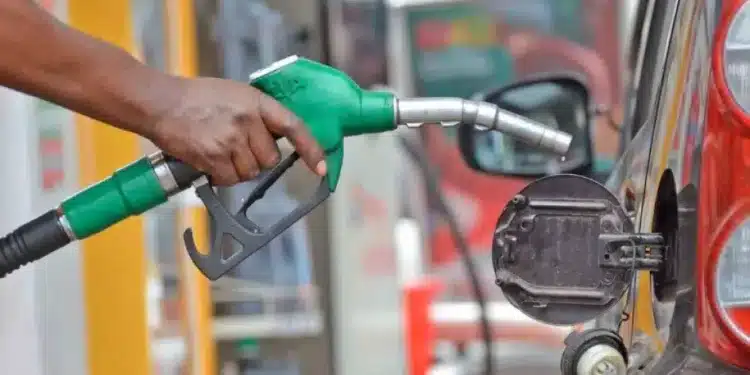The Energy and Petroleum Regulatory Authority (EPRA) has announced fuel prices for the period between April 15 and May 14, 2025.
In its monthly review report released on Monday, April 14, EPRA, has announced the maximum allowed petroleum pump prices for Super Petrol, Diesel, and Kerosene across the cities within the country.
In the period under review, the maximum allowed petroleum pump prices for Super Petrol, Diesel and Kerosene has decreases by Ksh1.95 per litre, Ksh2.20 per litre and Ksh2.40 per litre respectively.
Therefore, a liter of Super Petrol in Nairobi will retail at Ksh174.63, Diesel at Ksh164.86 and Kerosene at Ksh148.99 in Nairobi.
“The prices are inclusive of the 16% Value Added Tax (VAT) in line with the provisions of the Finance Act 2023, the Tax Laws (Amendment) Act 2024 and the revised rates for excise duty adjusted for inflation as per Legal Notice No. 194 of 2020,” stated EPRA.
According to the EPRA report, the average landed cost of imported Super Petrol increased by 1.34% from US$628.80 per cubic metre in January 2025 to US$637.22 per cubic metre in February 2025.
Further, the authority noted that the average landed cost of imported fuels saw a decline between February and March 2025.
Super Petrol dropped by 4.89%, falling from US$637.22 to US$606.06 per cubic metre.
On the other hand, Diesel registered a 6.45% decrease, moving from US$680.63 to US$636.75 per cubic metre, while Kerosene recorded the largest drop—6.53%—from US$672.14 to US$628.22 per cubic metre during the same period.
Also Read: List of 19 Companies Controlling Kenya’s Fuel Market Today
Fuel Prices Predicted to Increase
Energy and Petroleum Regulatory Authority (EPRA) Director General Daniel Kiptoo, speaking on March 12, announced that new charges will be introduced to help cover rising costs faced by Oil Marketing Companies (OMCs) and fuel transporters in Kenya.
Therefore, Kenyans would experience an increase in fuel prices in the following months.
EPRA stated that the adjustments aimed to ensure fuel prices accurately reflect the real costs along the supply chain.
Furthermore, the changes are based on recommendations from the second Cost of Service Study for the petroleum and electricity sectors, which the authority conducts every five years.
The latest study, which took 14 months and concluded in February 2025, recommended the introduction of new charges on petroleum products.
These proposals were approved by both policymakers and the EPRA Board of Directors.
As a result, the cost of Super Petrol, Diesel, and Kerosene is expected to rise following the implementation of these changes.
“We are looking at a mechanism where we implement the recommendations of this report in phases. We want to time it at a point when it will not impact the consumer negatively, and we want to apply it when petroleum pump prices are coming down,” Kiptoo stated.
Also Read: Ruto Gives Chinese Ksh60 Billion Received from Bank Loans
Fuel Levy Loan
The National Treasury in March received a Ksh60 billion financing package from a consortium of banks led by the Trade and Development Bank.
According to Cabinet Secretary John Mbadi, the short-term facility is expected to be repaid through proceeds of the road maintenance levy, a tax collected on fuel to fund road infrastructure.
This could mean that Kenyans will see an increase in fuel prices in the following months.
Further, Treasury Cabinet Secretary John Mbadi explained that the decision came because the government was facing mounting pressure over stalled development projects, rising debt, and concerns about public service delivery.
Under the plan, the road maintenance levy will serve as collateral, allowing the government to tap into future revenue to pay off the loan.
Follow our WhatsApp Channel and X Account for real-time news updates.











































































